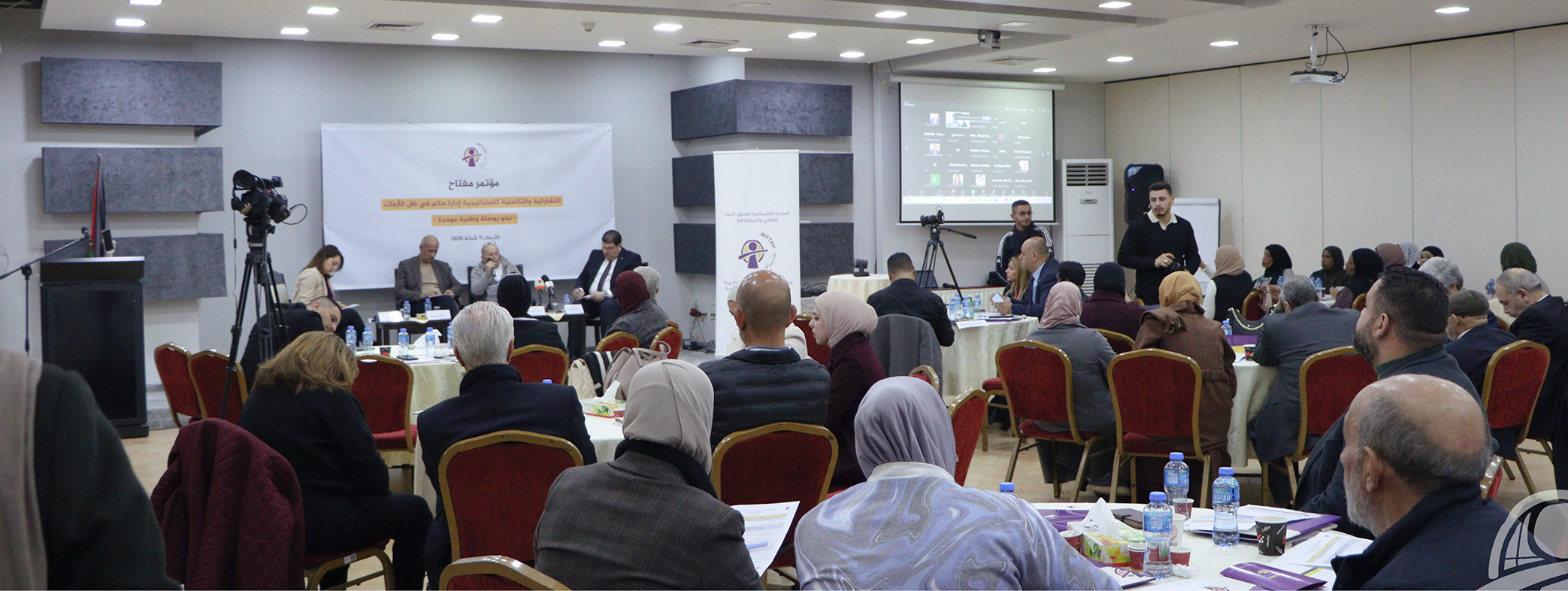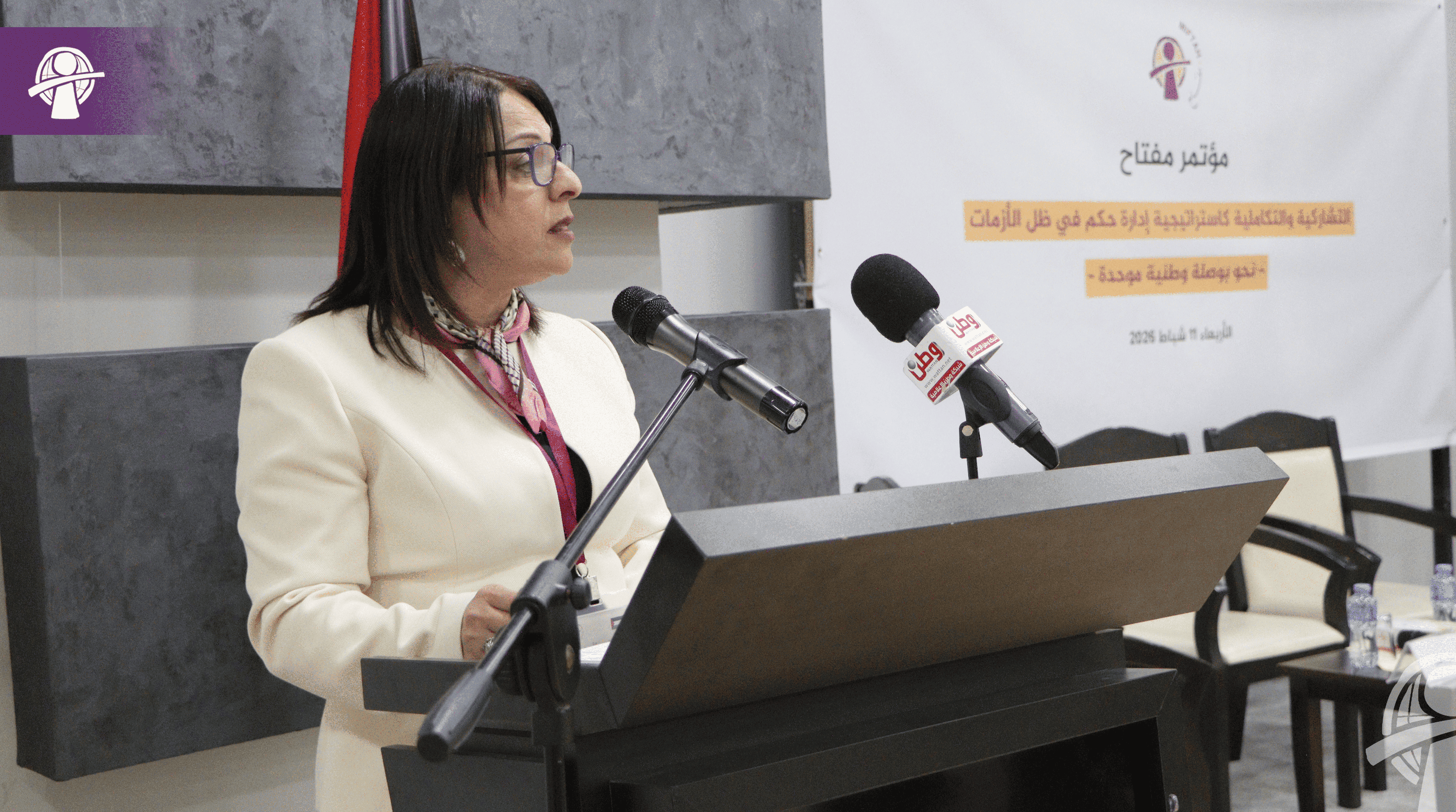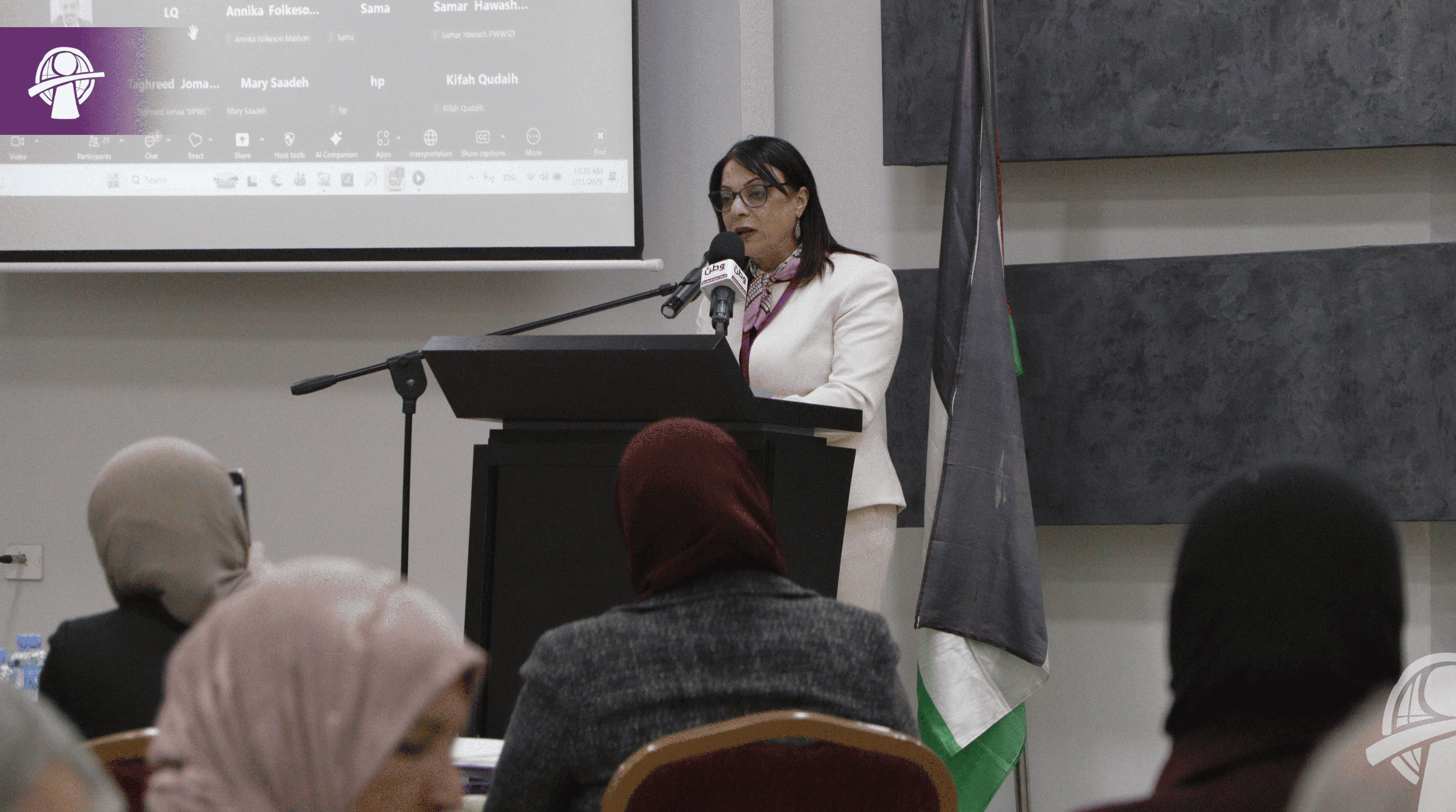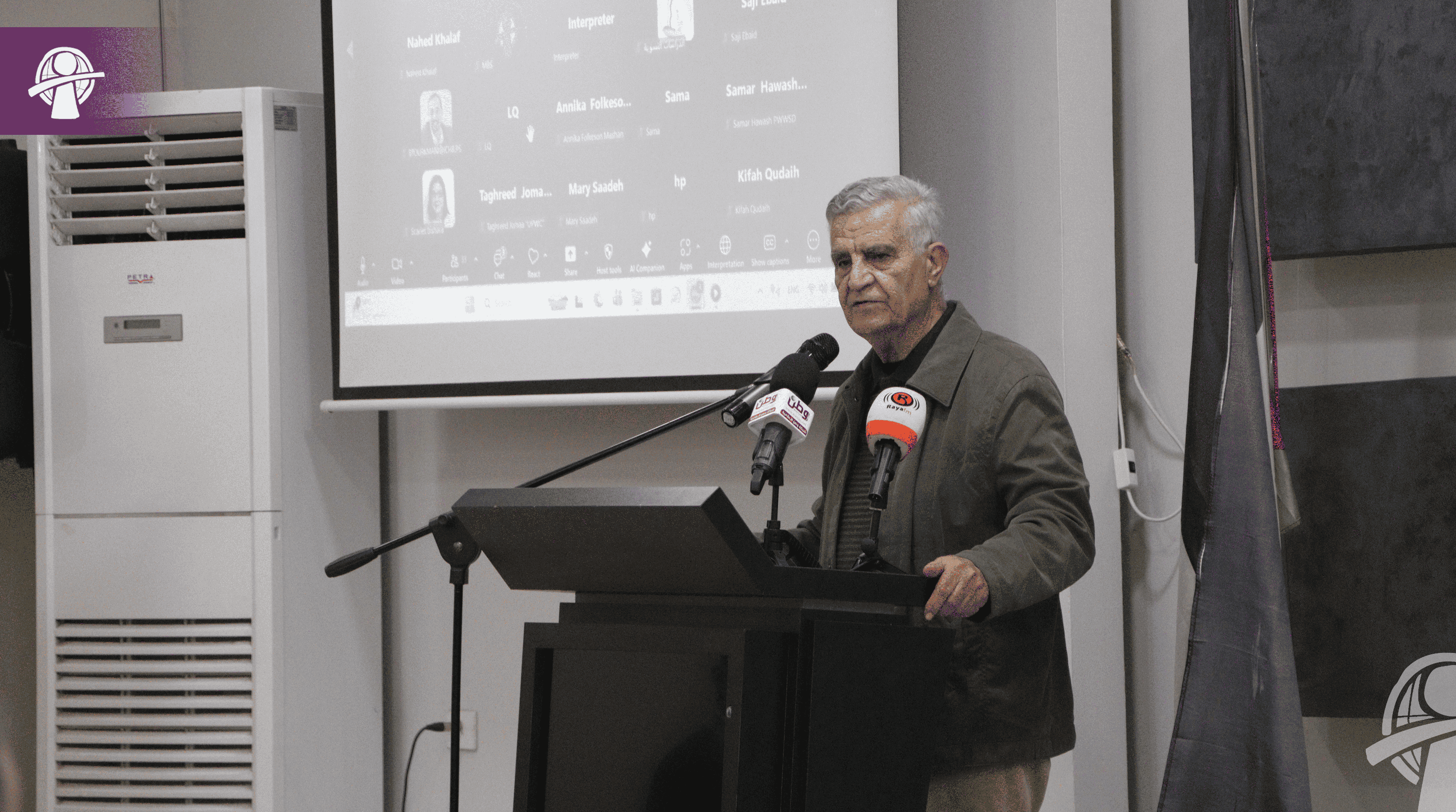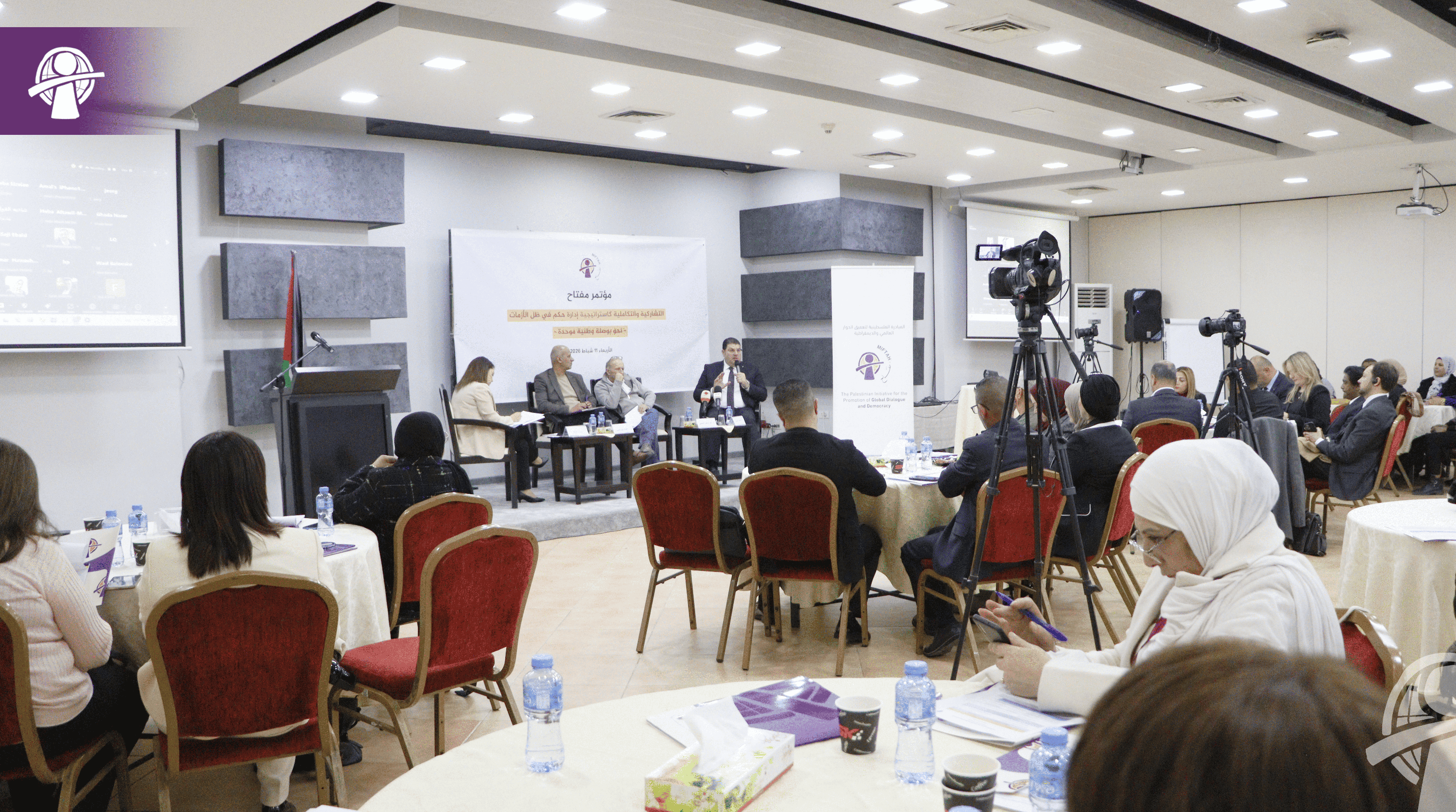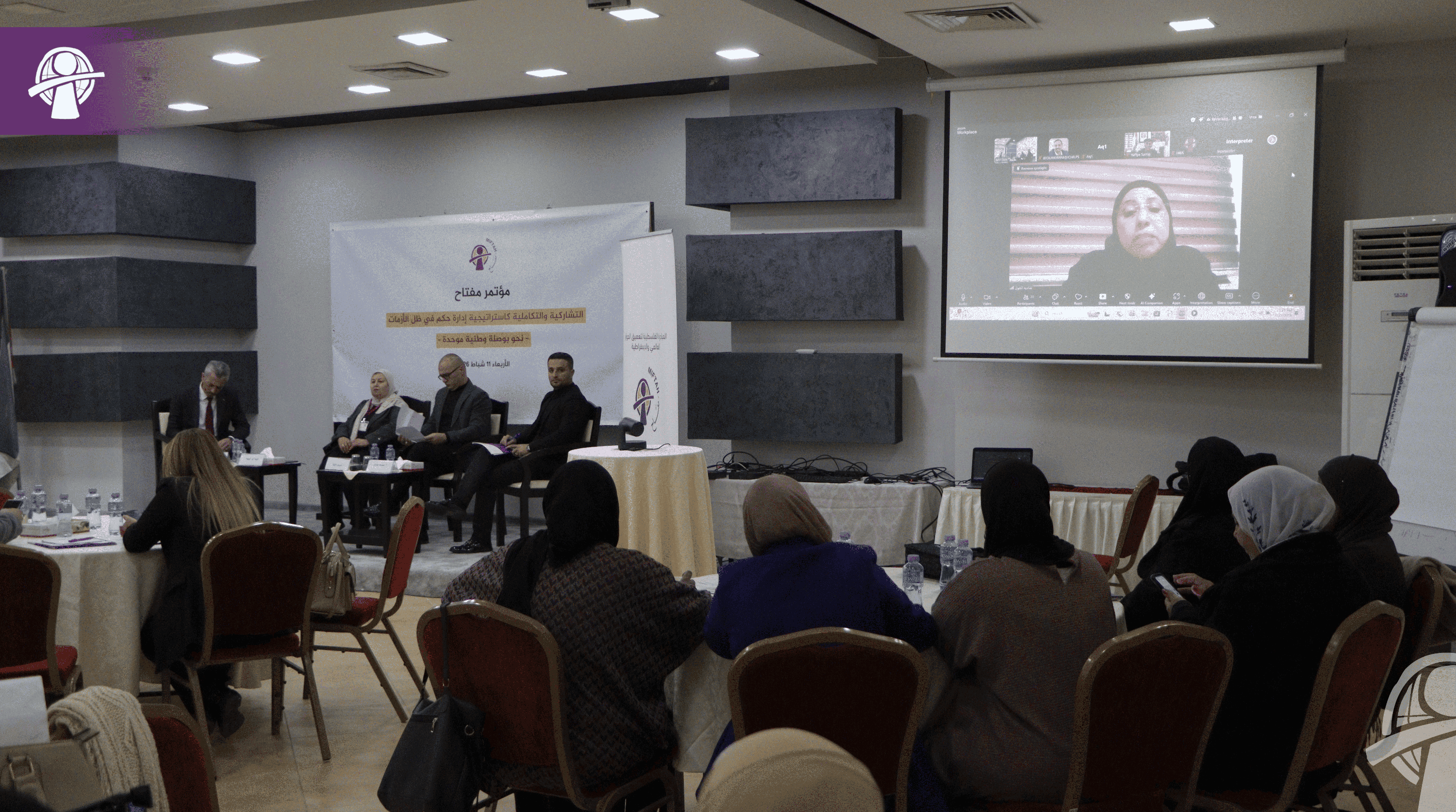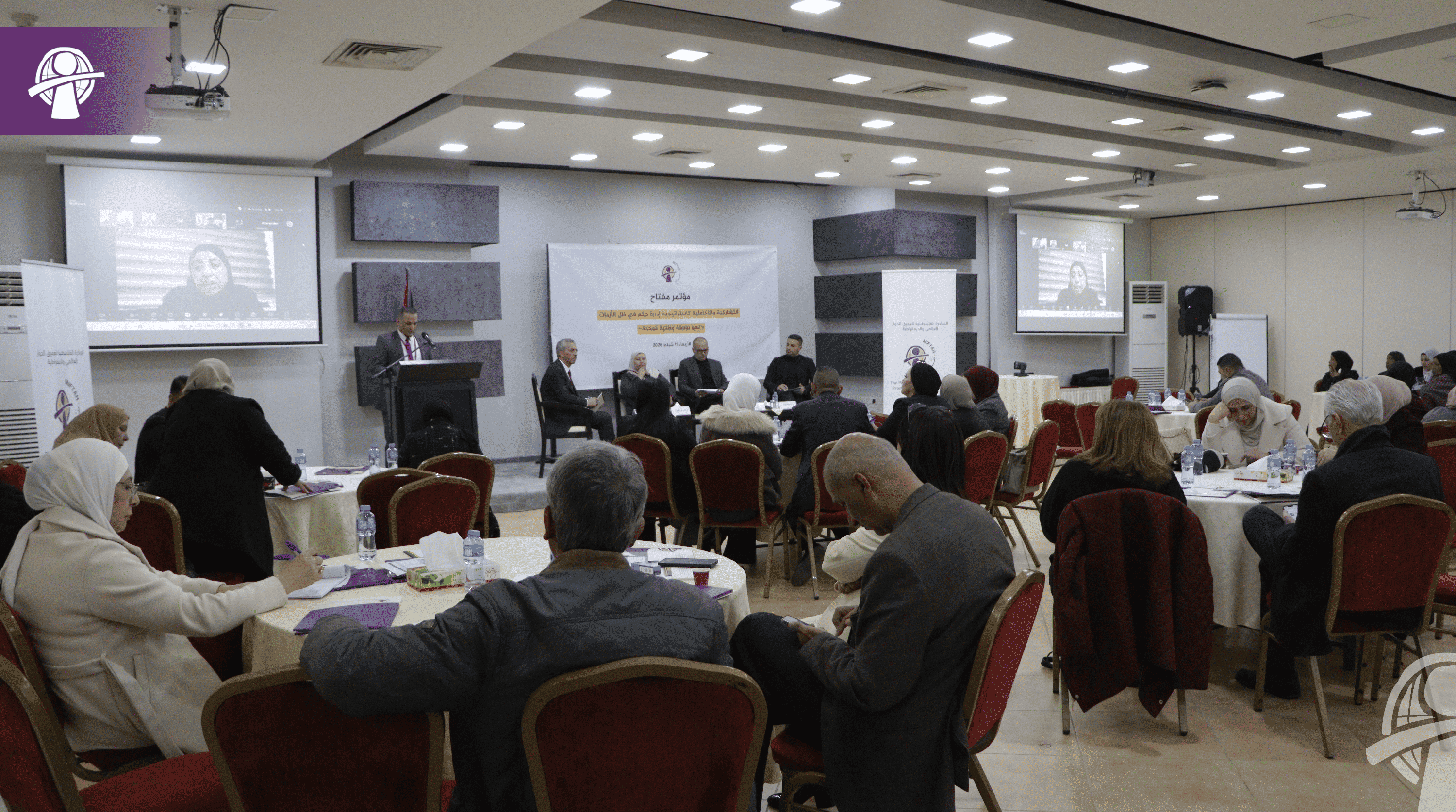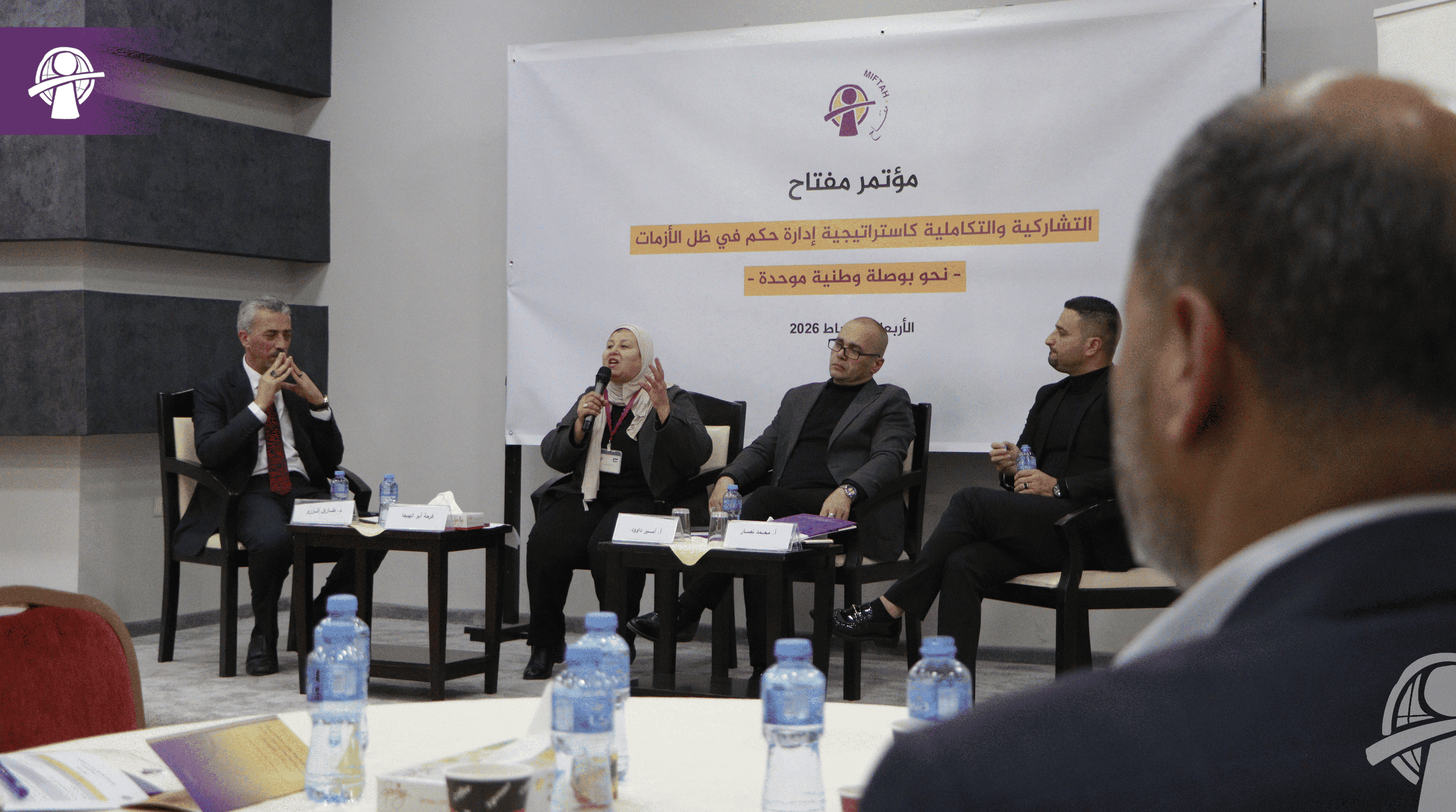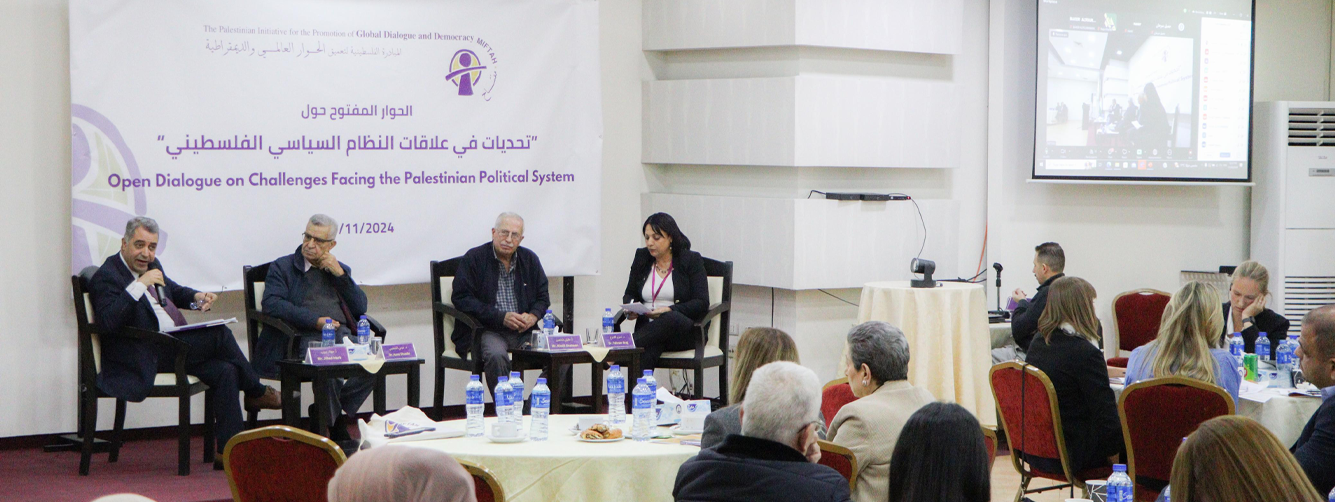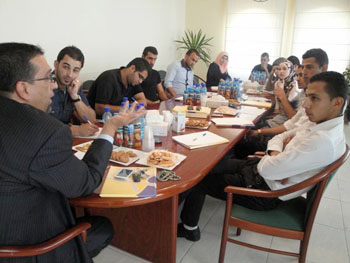
Youth, both male and female, have always had a share in MIFTAH’s programs and have been allowed the chance to take on a role both politically and socially.
MIFTAH CEO Dr. Lily Feidy believes that catering to youth in particular is part of MIFTAH’s approach to empower and support youth leaders, from the standpoint of its overall understanding of the challenges and problems facing our youth. MIFTAH launched its empowerment of youth leaders program in 2003 to enable youth to actively participate in the change and development process in Palestine both at the political and social levels. “So that MIFTAH can achieve its goals of contributing to building a modern democratic civil society, we focus on empowering young social and political leaders as a strategy, through empowering them to actively participate, offer creative initiatives and contribute to the social change process” she says. Feidy says it is through this process, which is voluntary and optional, that individuals can play a role in society. Through it, individuals seek to impact their communities through the various activities, such as volunteer work. Such activities benefit society as a whole and contribute to positive change in addition to providing youth with a platform for conflict transformation and building a consensus around vital issues pertaining to the transformation of Palestinian society towards building a democratic state.
One of the youth participants, Sajeda Abdallah, says she greatly benefited from MIFTAH’s training workshops, including gaining more skills. “One important skill I learned was accepting others and their different opinions,” she says, adding that MIFTAH’s training was unique in its adoption of the KUMI method.
Another participant, Ghassan Atawneh, says he benefited more from the theoretical aspect, which he says could help him in practical aspects of his life. “Not only did we learn new skills but we gained new approaches in dialogue, leadership and strategic planning,” he says. He adds that MIFTAH has given them the hope that change is possible, expressing his desire for more focus on social issues.
Riziq Tmeizi pointed out another benefit from the training, which was that it offered them information about Palestinian law and the overall conditions regarding inter-factional relations in Palestine as well as the conditions of youth and the role of women in society.
One young woman who participated, Lana Abu Bakr, said the workshops benefited her personally in that they introduced new values and principles at the social, personal and political levels of her life. “We still need many more skills and information, which means we need to continue participating in more MIFTAH workshops,’ Abu Bakr maintained.
Asma’ Zghayar was, like many other participants, impressed with the KUMI methodology employed in the workshops. She says the training left a positive impact on her in terms of ways to deal with certain customs and traditions which stymie her role as a woman.
Jacqueline Khatib agrees. She says the youth participants came out of the training more aware about political and factional matters, saying she hoped the trainings would continue. Abdallah Qadah said he was now convinced of the importance of changing ways of thinking, saying MIFTAH’s workshops impacted each and every one of them. He also gave credit to the trainers who he said had adopted a new approach, unfamiliar to the approaches they had encountered in other organizations.
These are some of the experiences of the socially and politically active youth network, which were discussed during an evaluation session carried out by MIFTAH as part of its “Empowerment of Young Palestinian Leaders” project, funded by the Norwegian and Irish Representative Offices and NDC.
Project coordinator Shadi Zeidat said the evaluation meeting discussed the importance of committing to the activities of the network, which was formed under the umbrella of the politically and socially active youth network last year. The network includes groups of 50 male and female youth from various West Bank universities and who participated in 11-day training workshops between April and November of this year. The workshops utilized the KUMI approach, based on social transformation in conflict and participatory strategic planning.
During the training, the participants carried out a group of activities pertaining to promoting the role of youth and their active participation as a fundamental part of society. It also offered them the platform for impacting decision-making positions on the one hand, and making an impact and change in the socio-cultural structure on the other.
During the evaluation, the most important obstacles were pinpointed in order to overcome them within the last two months of the year. This was achieved through planning to carry out a number of activities and initiatives that serve the goals of the network and its strategic approaches.
The meeting also discussed the mechanism through which the scope of mutual commitment and responsibility could be increased among all parties, so that there could be a sizeable number of active youth to follow up and carry out the activities.
The network also seeks to expand these activities to outside of the organization and into the field so as to be in touch with the needs of the society.
As for his assessment of the evaluation session, Zeidat said he felt that the qualitative training the participants received had created a substantial change at the various intellectual levels of the youth. He said they were forced to think outside the box of conventional and pedantic thinking and analysis and taken to a much more advanced level of dealing with issues from a needs-based perspective rather than one based in narrow factionalism. “Part of MIFTAH’s goals is to create a safe participatory space for this group of young men and women, which will allow them to create their own platform and influence the socio-economic structure and decision-making centers.”



